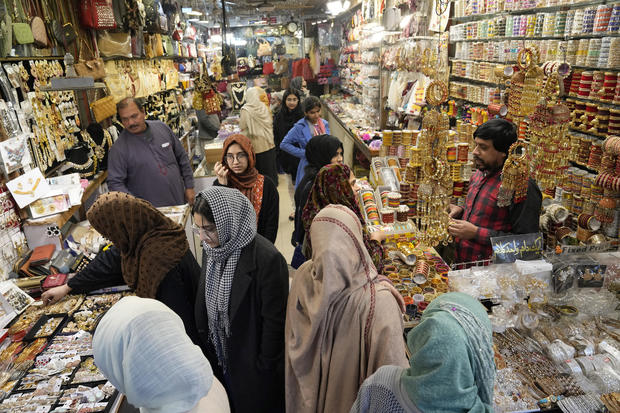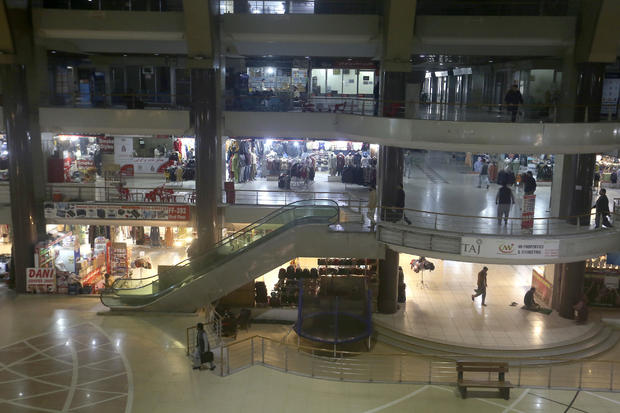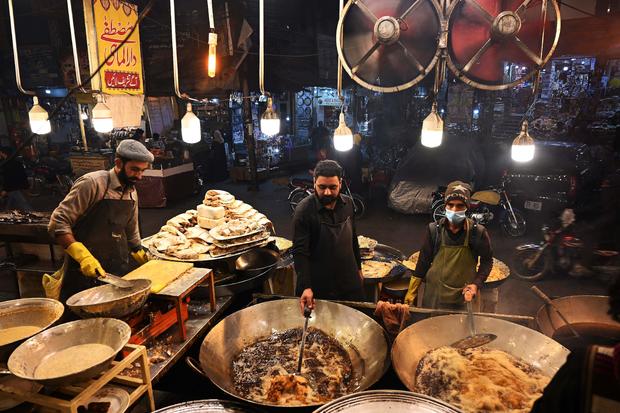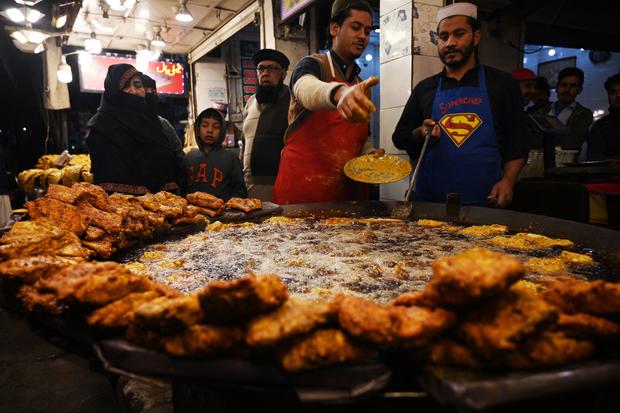K.M. Chaudary/AP
Islamabad, Pakistan — It’s a feature of Pakistani urban life that bemuses many Western visitors to the country: Stores and malls stay open late, and typically stay busy well into the evening.
Need a hand-woven carpet at 9:30 p.m.? Not a problem. A bespoke three-piece suit at 10? The local tailor is still whirring away on his sewing machine. Some spicy samosa snacks and a cooling kulfi ice cream after midnight? The shop next door is, of course, still cranking them out.
But it seems this late-night consumer culture may soon become a thing of the past, as the desperately cash-strapped Pakistani government has ordered all malls and markets to close by the unheard of early hour of 8:30 p.m.
Muhammad Sajjad/AP
It’s one of a handful of new measures announced recently in a bid to conserve energy — not because Pakistan is trying to go green, necessarily, but because it simply can’t afford to keep the lights on.
The country’s defense minister, Khawaja Asif, apprised journalists of the cabinet-approved plan to close markets, including restaurants, which is intended to save the country about 62 billion Pakistani rupees, or $273 million, annually.
Additional immediate measures included closing wedding halls by 10 p.m. every day — at which hour some guests wouldn’t even have arrived at a traditional Pakistani wedding.
The energy conservation plan also includes banning the production of inefficient light bulbs and fans from February and July respectively.
FAROOQ NAEEM/AFP/Getty
Asif also said Prime Minister Shehbaz Sharif had ordered all government departments to reduce electricity consumption by 30%.
Half of the street lights across the country will also remain switched off, as a “gesture,” he added.
The measures were prompted by the dire straits in which Pakistan’s economy has been mired for years. International markets fear the country of 230 million people may be poised to default on its national debt repayments for the first time in decades. If that happens, there’s concern it could trigger a complete economic collapse of the national economy, and even large-scale social unrest.
A $1.1 billion bailout from the International Monetary Fund remains stuck due to disagreements with Pakistan’s government over belt-tightening measures the international finance organization has demanded. Negotiations should have been completed in November.
Most of Pakistan’s electricity is produced using imported fossil fuels, including liquefied natural gas, the prices of which have sky-rocketed in recent months.
FAROOQ NAEEM/AFP/Getty
The government has tried to stabilize the economy by reining-in imports and decades-high inflation. But fast-depreciating currency has made imports more expensive, while consumer prices saw a 25% year-on-year rise in the first half of the current fiscal year.
Although the economy desperately needs stability, business groups have been unhappy with the plan announced by the government.
The main business association for small to medium traders, the All Pakistan Anjuman-i-Tajiran, insisted that shops would remain open until at least 10 p.m. and restaurants until 11. Conserving energy by curbing economic activity was not a wise strategy, the group said.
Instead, it proposed conserving energy by cutting down on the use of air conditioners and heaters in government buildings and restricting fuel and power privileges for bureaucrats and government officials.
The business community should be provided an uninterrupted power supply to keep the economy moving, it insisted.
The impasses, both internally between business leaders and the government, and between the government and the IMF, clearly don’t bode well for Pakistan’s economy as the country settles into a new year.











More Stories
Google restructures finance team as part of AI shift, CFO tells employees in memo
Tech Leads Stocks Higher as Investors Mull Mixed Inflation Data
California minimum-wage mandate causes maximum damage